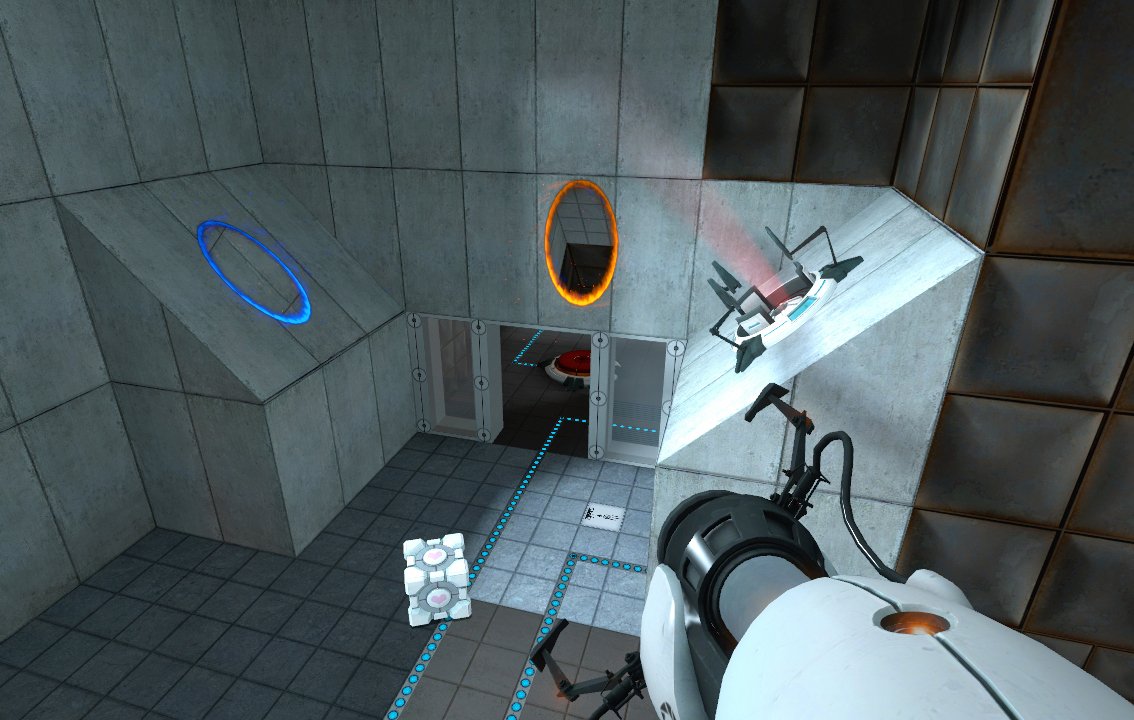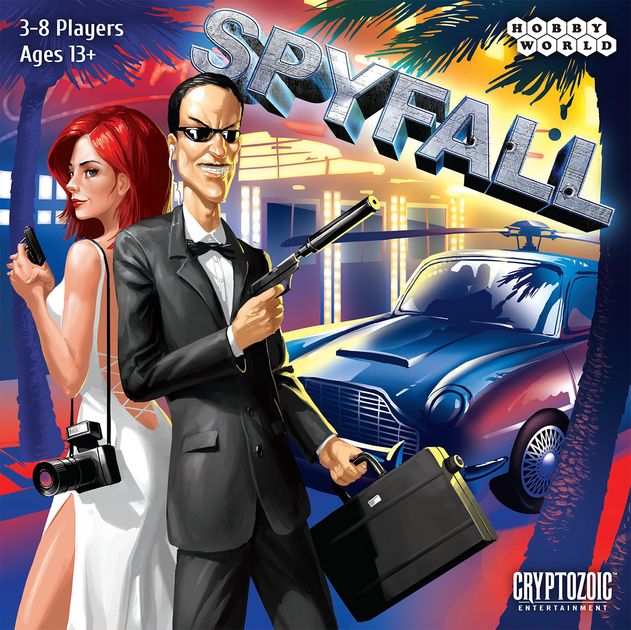Portal is a 2007 puzzle-platform game developed and published by Valve. Portal consists primarily of a series of puzzles that must be solved by teleporting the player’s character and simple objects using “the Aperture Science Handheld Portal Device”, a device that can create inter-spatial portals between two flat planes.
This is a single player game wherein the objective is for the player-character, Chell, to complete each puzzle in the Aperture Science Enrichment Center using the portal gun as they are challenged and taunted by an artificial intelligence named GLaDOS with the promise of receiving cake when all the puzzles are completed.
This is probably one of the best games I’ve ever played. This is because I think it’s a perfect example of being able to incorporate gameplay and narrative seamlessly in such a way that these don’t compete but rather complement each other. Of course the main mechanic of the game that creates the fun as challenge is the use of Portals. Basically, there are two portals you can create: a blue and an orange. If you walk into the orange you come out of the blue and vice-versa. This simple concept is the basis of the entire game. Your job as a player is to figure out how to creatively use these portals, which you shoot onto different surfaces in order to move forward. At first these are easy: shoot a portal on this side of the gap and on the other to cross the gap. As the player gets better at using these, the developers were really creative about taking this simple mechanic and stretching what the player expects they can do with these: put a portal at the bottom of this big drop and another in the direction in which you wanna be launched so as to cross a gap with the momentum you gain during the fall.

This game with portals alone would have been entertaining, but what makes it really fun are the elements of fantasy and narrative. Everything from the voice of the AI to the modern simplistic aesthetic to the sterile look of it all makes you feel like you really are a subject being experimented upon by an AI. For instance, the game wouldn’t have quite the right atmosphere if these portal tests were occurring in an 18th century laboratory instead of a futuristic AI dystopia. This fantasy element makes the player invested and want to exist in this space while the puzzles make it entertaining and a challenge. But what keeps the player interested in continuing to move forward? The narrative. The story telling alone is a haunting tale that could stand on its own. Not only does the AI sometimes “slip up” and make you think this isn’t just about completing puzzles. But there are clues all over the place like secret closets lacking the futuristic-look that hint to the player that something is not right. For me this curiosity of what really is going on is what kept me pushing forward in this game, and willing to spend time trying to figure out the harder puzzles.
As far as what to improve, all I can say I wish the game were longer! There’s always Portal 2.


